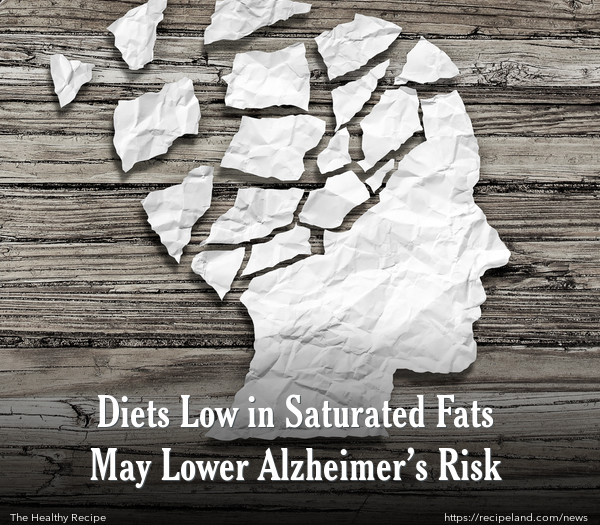A recent study shows that high saturated fats can strip the brain of important chemicals that protect the brain from Alzheimer’s disease.
A small study published in the JAMA Neurology journal has found that diets high in saturated fats and sugars lowers levels of apolipoprotein E (ApoE) in the body. ApoE is a chemical that helps clear out amyloid proteins in the brain.
What exactly does this mean?
The more amyloid beta proteins are in the brain, the more likely they are to interfere with the healthy function of neurons. These amyloid proteins can become toxic, forming neuron-damaging plaques – the same plaques that show up in the tissue of Alzheimer’s patients brains.
These results were found to be the case in a small clinical trial studying the diet and cognition levels of 47 patients in their late sixties. Twenty seven of the patients already showed mild thinking or memory impairment, which is typically an early sign of Alzheimer’s, while the other twenty showed normal cognition. In the study, all patients were randomly put on either low or high saturated fat diets.
Within a month, researchers found that patients on the high saturated fat diet showed higher levels of ApoE and amyloid beta protein in their cerebrospinal fluid.
Diet plays a huge role in the brain’s ability to clean out potentially toxic ApoE and reduce your risk for developing Alzheimer’s disease later in life.
Dr. Craft stated that: "Diet is a very under-appreciated factor in terms of brain function. It's quite well accepted for your heart and your cholesterol and your blood, but diet is critical for a healthy brain aging. Many of the things the brain needs to function properly -- fatty acids, certain amino acids -- come only from food."(1)
People often think that eating a nutritious diet low in saturated fats and sugars is important for weight loss and heart health. This study shows that your diet can actually impact brain chemistry as well.
Consuming a heart healthy diet, with good unsaturated fats and low amounts of high saturated fats may be just as beneficial for long term cognitive function – and help protect against Alzheimer’s disease.
A 2006 study showed “that dietary fat intake at midlife is related to dementia and AD later in life. Persons using moderate amount of fats from spreads and milk products had a decreased risk of dementia compared to persons using very little or no fats at all, indicating that moderate amounts of fat in the diet may be beneficial.”(2)
SOURCES: More information on dementia and Alzheimer’s disease is available at https://www.fightdementia.org.au/; Image courtesy of ddpavumba / FreeDigitalPhotos.net;(1)Suzanne Craft, Ph.D., professor of medicine, Wake Forest School of Medicine, Winston-Salem, N.C.;June 17, 2013, JAMA Neurology, online(2)Laitinen, M., Ngandu, T., Rovio, S., Helkala, E., Uusitalo, U., Viitanen, M., & ... Kivipelto, M. (2006). Fat intake at midlife and risk of dementia and Alzheimer's disease: a population-based study. Dementia And Geriatric Cognitive Disorders, 22(1), 99-107.










Comments